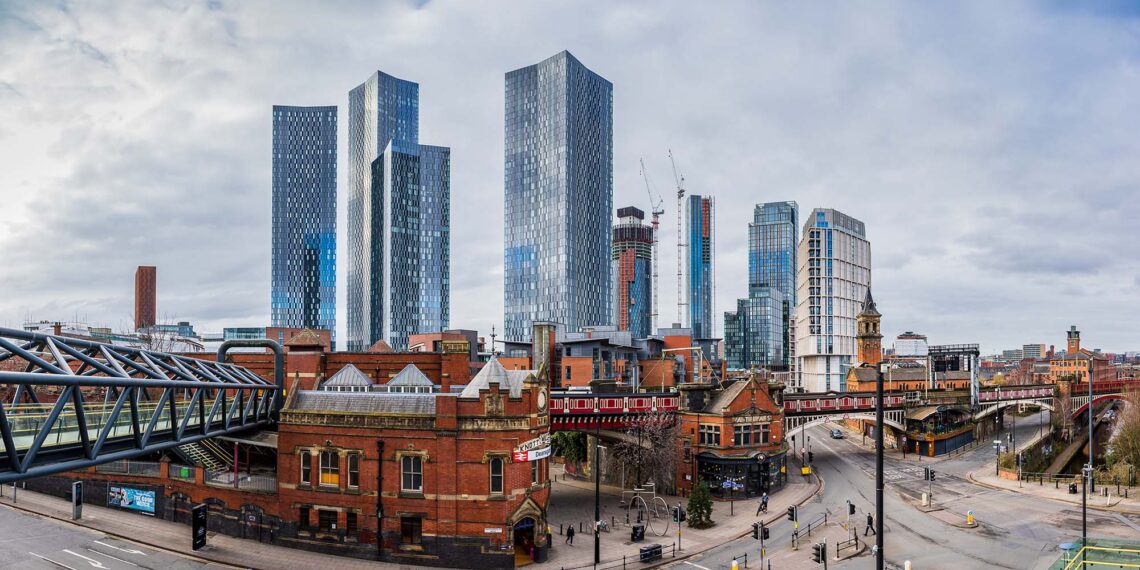Introduction
According to Colliers’ latest H1 2024 UK Top Residential Investment Cities Report, Manchester ranked third among 20 major UK cities, making it the highest-ranked residential investment city in England.
- Edinburgh and Glasgow retained the top two positions, reflecting the strong appeal of Scotland’s leading cities.
- The ranking is based on 24 indicators across five key categories: economy, R&D, liveability, real estate, and sustainability.
Key Market Highlights
1. Manchester’s Investment Strength
- House Price Growth: Up 33% over the past five years—more than double the 20-city average of 15%.
- Economic Growth: Projected annual GDP growth of 2.2% over the next five years, higher than the 20-city average of 1.8%.
- Employment: Unemployment rate expected to remain at 3.7%, reflecting a stable job market.
- Population Growth: Forecasted annual growth of 1.14% over the next 10 years, supported by a strong student population (second only to London).
- Rental Demand: High rental demand from young professionals and students, supporting stable rental yields.
- Corporate Presence: Major firms like JP Morgan, Octopus Energy, and Rolls Royce have established key offices in Manchester.
- Government Support: Urban renewal projects (e.g., NOMA), expansion of build-to-rent schemes, and greybelt land development to address housing shortages.
2. UK Top 10 Residential Investment Cities (H1 2024)
- Edinburgh
- Glasgow
- Manchester
- London
- Oxford
- Milton Keynes
- Belfast
- Cambridge
- Leeds
- Cardiff
- Edinburgh and Glasgow’s continued dominance reflects Scotland’s stable investment environment.
- London ranked fourth due to high property prices and lower rental yields.
Market Analysis and Insights
1. Manchester’s Competitive Edge
Economic and Employment Strength
Manchester’s projected GDP growth of 2.2% outpaces the national average. Corporate relocations and entrepreneurial activity are driving job creation and housing demand.
Property Market Performance
House prices have risen 33% over the past five years, significantly outperforming other UK cities. Rental demand remains high due to strong population growth and a large student population.
Policy and Urban Planning
Urban renewal projects (e.g., NOMA) are enhancing infrastructure and improving liveability. Build-to-rent schemes and greybelt land development are expected to support long-term housing supply.
Population and Student Market
Manchester has the second-largest student population in the UK after London. Stable demand for student housing and rental properties is expected to sustain rental yield growth.
Strategic Recommendations
Focus on Manchester’s strong economic fundamentals and population growth, making it the most attractive residential investment target in England.
Diversify beyond London as high property prices and lower rental yields suggest better returns in northern cities like Manchester and Leeds.
Leverage Manchester’s expanding corporate sector and government-supported housing policies to drive long-term appreciation.
Target rental properties catering to students and young professionals for stable yield growth.
Conclusion
Manchester stands out as the most promising residential investment market in England, driven by strong economic growth, rising house prices, and robust rental demand.
- Edinburgh and Glasgow remain stable investment hubs, but Manchester’s growth trajectory makes it the top choice for long-term capital appreciation.
- Investors should focus on cities with strong population growth, job creation, and government support to maximise returns.































